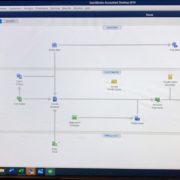The Importance of Audit Planning in Financial Audits
Planning is one of the four essential processes in conducting a financial audit, alongside Testing, Reviewing, and Reporting. The auditor plays a crucial role in this stage, responsible for creating a strategic plan that outlines what will be tested and how. The auditor must follow the requirements for an audit with auditing standard AS 2101: Audit Planning is from the Public Company Accounting Oversight Board (PCAOB).
Some important points to understand about audit planning include:
Objective of Planning
The primary objective of planning an audit is to ensure the audit is conducted effectively. A well-structured plan provides a clear roadmap for auditors, helping them to focus on key areas that require attention and scrutiny.
Responsibility of the Engagement Partner for Planning
The Engagement Partner holds significant responsibility for planning the audit and overseeing its execution. This individual not only leads the audit engagement but also collaborates with team members to ensure all necessary aspects are covered. Effective communication within the team is critical to the planning process.
Planning an Audit
Planning an audit involves several vital components. This includes establishing the overall audit strategy, identifying other auditors or referred auditors who may be involved, and conducting risk assessment procedures. Additionally, auditors must develop planned responses to the risks of material misstatement, tailoring their approach based on the specific circumstances of the audit.
Preliminary Engagement Activities
Preliminary engagement activities mark the beginning of the audit process. These activities encompass assessing the continuity of the client relationship, ensuring compliance with independence and ethics requirements, and preparing for the subsequent phases of the audit.
Planning Activities
A comprehensive understanding of the client’s internal controls is crucial during planning activities. Auditors must consider various factors, such as matters affecting the industry, the extent of recent changes within the organization, previously communicated control deficiencies, and any legal or regulatory issues that may arise.
Audit Plan
The audit plan serves as a crucial document that outlines the nature, timing, and extent of audit procedures. This includes risk assessment procedures, tests of controls, and substantive procedures. Developing and documenting a clear audit plan is essential for guiding the audit process and ensuring all necessary tests are performed.
Changes During the Course of the Audit
Throughout the audit, it is important to remain flexible. Auditors must be prepared to modify the overall audit strategy in response to significant changes that may occur. A revised assessment of the risks of material misstatement may lead to adjustments in the audit plan to maintain the effectiveness of the audit.
Audit Planning: Final Thoughts
Audit planning is a critical component of the financial audit process. It requires careful consideration and time to gather the necessary information to ensure it progresses smoothly. The Engagement Partner must maintain open communication with the Engagement Team Members and document a detailed plan. Conducting a thorough risk assessment allows the team to better understand the client, identify high-risk areas that necessitate additional testing, and ensure effective auditing of the client’s financial statements. Finally, any changes during the audit should be promptly communicated to ensure that the audit remains aligned with its objectives and that the client’s financial integrity is upheld.










